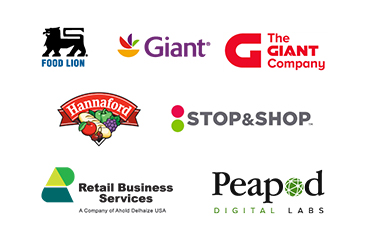Ahold Delhaize USA, which operates more than 2,000 food stores and distribution centers, is now utilizing sustainably-sourced seafood across all of its retailers’ seafood products.
The Quincy, Massachusetts, U.S.A.-based retailer began a comprehensive initiative in partnership with the Gulf of Maine Research Institute (GMRI) to vet and audit all seafood products – whether they were private brand or national brand – on a continuous basis to “ensure they meet Ahold Delhaize USA companies" rigorous sustainable seafood policy,” the retail conglomerate said in a press release.
In total, Ahold and GMRI have assessed more than 3,000 products.
“Our commitments to enable greater transparency are grounded in our belief that consumers deserve to know where their food comes from and that it contains ingredients they trust,” Ahold Vice President of Health and Sustainability Brittni Furrow said. “What’s most meaningful about the sustainable seafood work is that it’s a tangible example of our companies’ commitments to their customers and dedication to putting into practice the sustainability outcomes we have committed to.”
Suppliers must provide information on each product, including how and where fish were caught or farmed, and whether the fish is sourced from a fishery or farm that is certified to a Global Sustainable Seafood Initiative-benchmarked standard, engaged in a fishery improvement project, or assessed as low risk by GMRI.
“Ahold Delhaize USA has demonstrated great leadership with their approach to seafood sustainability. Their sustainable seafood policy is comprehensive in its scope, including all fresh, frozen, and canned seafood, and they implement strict traceability requirements of suppliers to ensure they know where their seafood is coming from," GMRI Senior Program Manager Kyle Foley said. “Further, they are constantly looking for opportunities to keep improving.
In related news, Lakeland, Florida, U.S.A.-based Publix has donated USD 40,000 (EUR 38,000) to the Sustainable Fisheries Partnership and announced its “enhanced commitment to marine life conservation by collaborating with SFP to analyze and understand current fishing practices within the supply chain,” the retailer said in a press release.
Publix and SFP have collaborated since 2009, and Publix has donated a total of USD 480,000 (EUR 459,000) over that time to support fishery and aquaculture improvement projects and other efforts to advance the sustainability of seafood.
“It’s a priority to Publix to source from healthy, well-managed fisheries,” Publix Business Development Director of Seafood Guy Pizzuti said. “We look forward to continuing to work with SFP and across the seafood industry to address unintended catch of endangered, threatened and protected species.”
This year, Publix was the first U.S. retailer to join with SFP, BirdLife International, and Whale and Dolphin Conservation to review and understand the risks from the unintended catch of ocean wildlife in the seafood sourcing supply chain.
“Unintended catch, referred to in the seafood industry as bycatch, occurs when commercial fishers accidentally catch nontarget species while fishing, which is a contributor to endangered, threatened and protected species population decline. Affected populations include whales, sharks, dolphins, turtles, seabirds and more,” Publix said.







